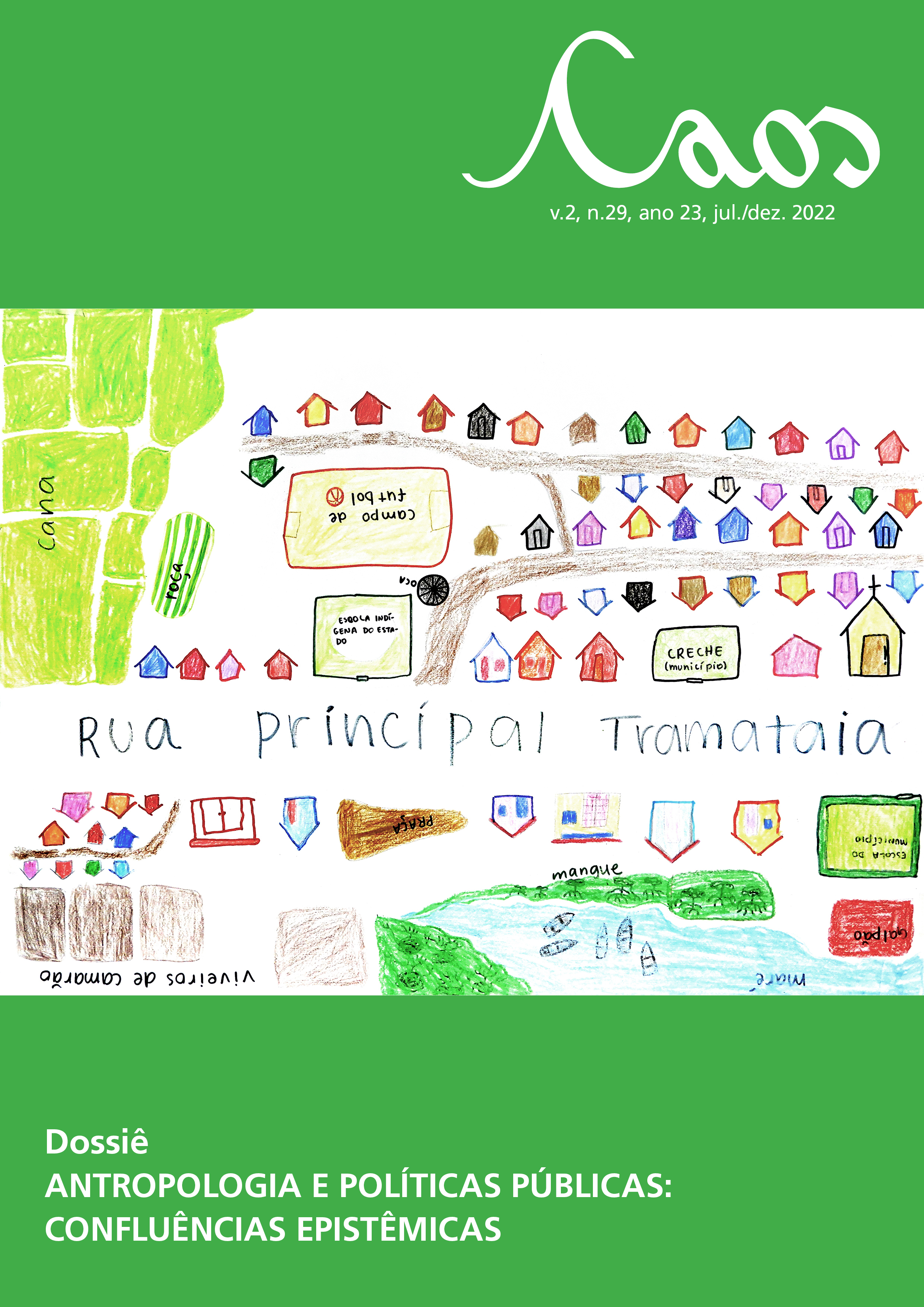THINKING ABOUT ANTHROPOLOGY IN THE FIELD OF PUBLIC POLICIES: reflections on the extinction of the National Council for Food and Nutritional Security
DOI:
https://doi.org/10.46906/caos.n29.62773.p162-179Keywords:
CONSEA, food security, necropolitics, anthropology of public policiesAbstract
This article proposes to discuss the scenarios of emergence and extinction of the National Food and Nutrition Security Council (CONSEA), reflecting on the political, economic and sociocultural contexts involved in these processes. Reflecting upon what the political and health contexts in which we live in Brazil today, especially with the outbreak of the Covid-19 pandemic, say about the extinction of proven successful social and democratic policies and the institution of necropolitics, which create worlds of death for specific social groups. To do so, we carried out a bibliographical research, using secondary sources, articles and documents on the theme that were available in the following databases: CAPES Periódicos, Google Scholar, and SciELO. As a result, we identified a scenario of Brazil's return to the Hunger Map, which points to the institutionalization of Food and Nutrition Insecurity (FNS), due to the Brazilian State's interference in the face of this reality and the attacks that have been made on agencies that acted in the fight against hunger and social inequalities, as was the case of the CONSEA.
Downloads
Metrics
Published
Issue
Section
License
Copyright (c) 2022 Nádja Silva dos Santos, Maristela de Oliveira Andrade

This work is licensed under a Creative Commons Attribution-NonCommercial 4.0 International License.
A Caos é regida por uma Licença da Creative Commons (CC): CC BY-NC 4.0, aplicada a revistas eletrônicas, com a qual os autores declaram concordar ao fazer a submissão. Os autores retêm os direitos autorais e os de publicação completos.
Segundo essa licença, os autores são os detentores dos direitos autorais (copyright) de seus textos, e concedem direitos de uso para outros, podendo qualquer usuário copiar e redistribuir o material em qualquer suporte ou formato, remixar, transformar e criar a partir do material, ou usá-lo de qualquer outro propósito lícito, observando os seguintes termos: (a) atribuição – o usuário deve atribuir o devido crédito, fornecer um link para a licença, e indicar se foram feitas alterações. Os usos podem ocorrer de qualquer forma razoável, mas não de uma forma que sugira haver o apoio ou aprovação do licenciante; (b) NãoComercial – o material não pode ser usado para fins comerciais; (c) sem restrições adicionais – os usuários não podem aplicar termos jurídicos ou medidas de caráter tecnológico que restrinjam legalmente outros de fazerem algo que a licença permita.
Recomendamos aos autores que, antes de submeterem os manuscritos, acessem os termos completos da licença (clique aqui).
















